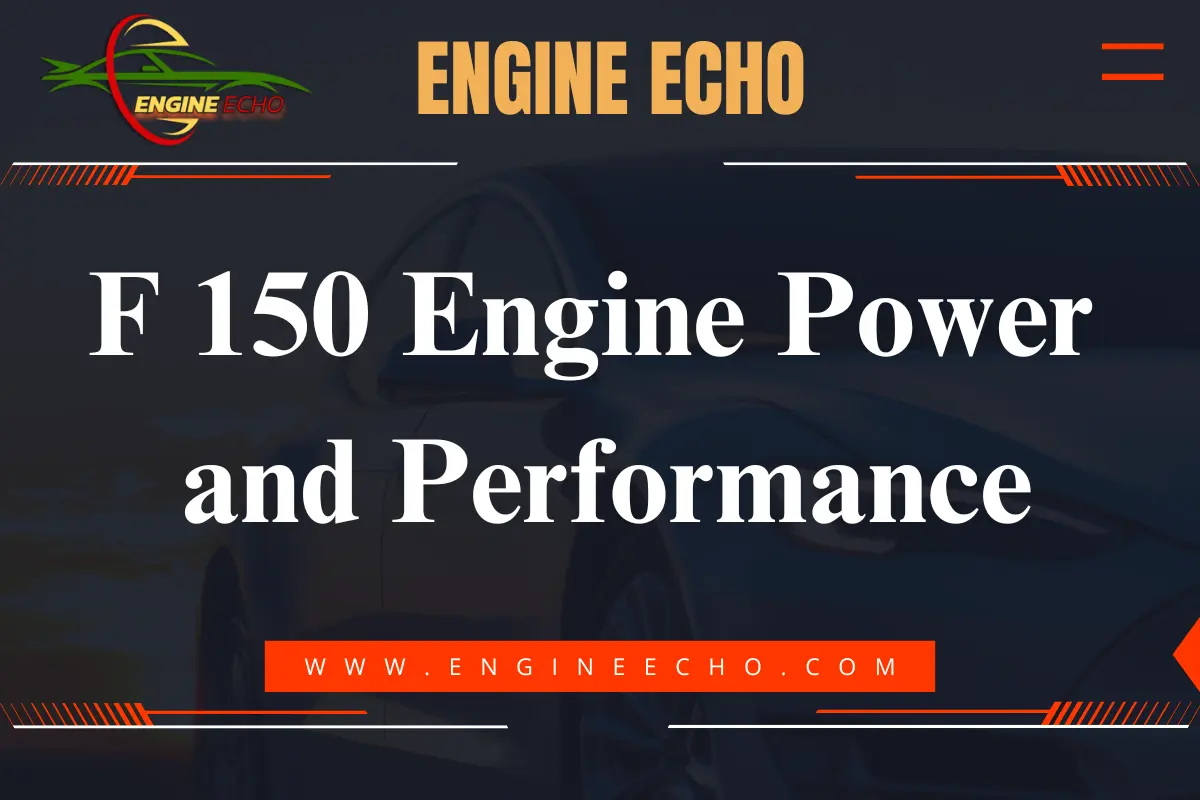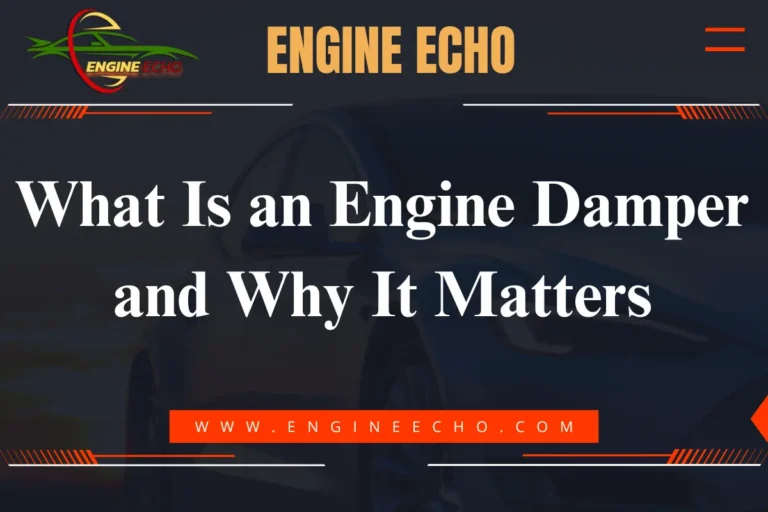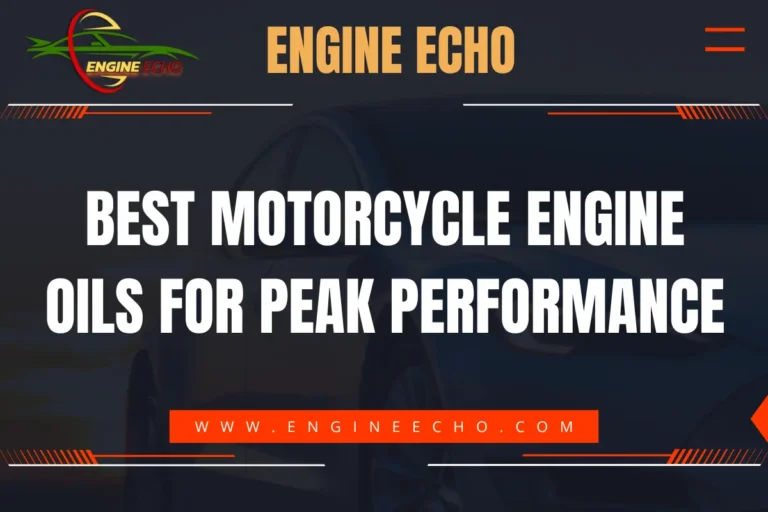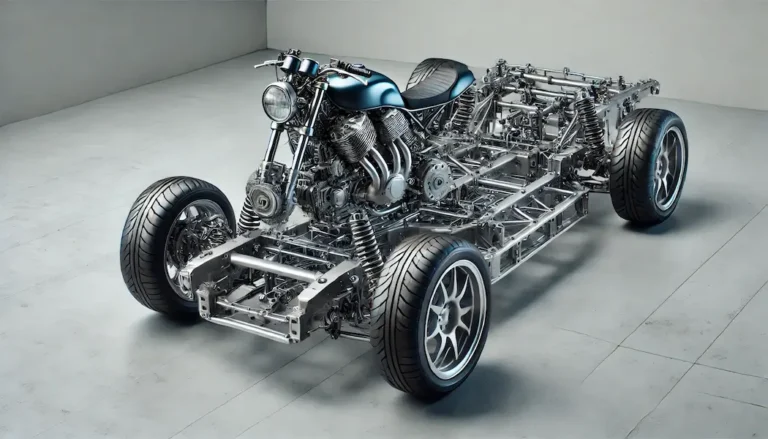F-150 Engine: Power and Performance

Key Takeaways:
- A thorough overview of different Ford F-150 engines, including gasoline, diesel, hybrid, and electric options.
- Analysis of engine performance in terms of horsepower, torque, towing capacity, and acceleration.
- Insights into fuel efficiency, focusing on EcoBoost and hybrid technology.
- Essential maintenance tips to prevent common engine issues and enhance longevity.
- Exploration of popular upgrades and modifications for boosting F-150 engine performance.
- A look at future trends in Ford F-150 engines, including hybrid and electric powertrains.
Introduction
There’s a reason the Ford F-150 has been my go-to truck for years—it’s all about the perfect mix of power, performance, and versatility. Whether you’re using it as a reliable daily driver or pushing it to the limits for work or adventure, there’s an F-150 engine that fits the bill. Trust me, having driven a few of these beasts, their engine options always deliver. In this article, I’ll walk you through what makes these engines so special and why they continue to be a top choice for truck lovers everywhere.
1. Overview of F-150 Engines
Having spent years following the F-150’s evolution, I can tell you that no two models are quite the same when it comes to engine options. The variety is incredible, and that’s one reason why I—and many other enthusiasts—keep coming back to this truck.
Evolution of the F-150 Engine
The F-150’s engine lineup has come a long way. From the reliable V6 and V8 engines of earlier models to the modern turbocharged and hybrid options, Ford has always stayed ahead of the curve. I remember when they first introduced the EcoBoost engine—I was skeptical at first, but after driving one, I immediately saw why it became so popular. It’s the perfect blend of power and efficiency.
Gasoline vs Diesel Options
- Gasoline Engines: If you’re like me and appreciate smooth acceleration and robust power, the gasoline engines in the F-150, especially the V8, are a great choice. They give you that classic driving experience, with plenty of power to spare.
- Diesel Engines: Diesel options, like the 3.0L Power Stroke V6, are a different beast. I’ve always been drawn to diesel engines for their unmatched torque, especially when I’m towing over long distances. The fuel efficiency doesn’t hurt either.
EcoBoost Engines
Ford’s EcoBoost engines, particularly the 3.5L V6, are personal favorites of mine. You get the kind of power you’d expect from a V8 with better fuel economy. When those turbochargers kick in, it’s a thrill, and the fuel savings over long drives make it a practical choice too.
2. F-150 Engine Models by Generation
Over the years, the F-150 has introduced newer, more advanced engines with each generation. Having driven multiple versions of this truck, I’ve experienced firsthand how each generation just gets better in terms of power and efficiency.
6th Generation (1975-1979)
These early models were built to last. My first F-150 was from this era, and while it didn’t have all the modern tech, it was a solid workhorse. The engines were simple, but they got the job done with no fuss.
9th Generation (1992-1996)
By the time I owned a 1995 F-150, the V8 engines were getting more powerful. The 5.0L V8 in my truck handled everything I threw at it—from long road trips to towing my boat—with ease.
12th Generation (2009-2014)
The introduction of the EcoBoost engines was a real game-changer for the F-150. I’ll never forget the first time I drove a 3.5L EcoBoost. The power was immediate, and the fuel efficiency? That was just the icing on the cake.
14th Generation (2021-present)
With hybrid and fully electric models, this generation is truly pushing the boundaries. While I haven’t yet driven the F-150 Lightning, I’m excited about what the future holds for Ford’s electric trucks.
3. Engine Performance Metrics
Performance is key when it comes to choosing a truck, and the F-150’s engines are all about delivering it. Whether you need power, torque, or towing capability, there’s an engine that fits the bill.
Horsepower and Torque
- The 3.5L EcoBoost V6 delivers a jaw-dropping 400 horsepower and 500 lb-ft of torque. I’ve personally towed a camper with it, and it made the job feel effortless.
- The 5.0L V8 is a classic choice for a reason. Nothing beats the deep growl you get when you step on the gas, and its 400 horsepower ensures you’ve got all the power you need.
Towing and Payload Capacity
The 3.5L EcoBoost is king when it comes to towing, offering up to 14,000 pounds of capacity. I’ve tested this with my own boat, and it handled the weight like a champ.
Acceleration
Believe it or not, the 3.5L EcoBoost can hit 0 to 60 mph in just 5.4 seconds. That’s seriously impressive for a truck this size, and it’s something you notice every time you accelerate onto the highway.
4. Fuel Efficiency of F-150 Engines
As much as I love power, fuel efficiency is also a big deal, especially on long drives. Ford’s engine options don’t just give you power—they’re surprisingly fuel-efficient too.
Gasoline Engines
For a great balance between performance and economy, the 2.7L EcoBoost V6 is hard to beat. It gives you up to 26 MPG on the highway, which is pretty solid for a truck this capable.
EcoBoost Technology
What’s awesome about the EcoBoost engines is that you get the best of both worlds. When you’re cruising, it’s efficient. But when you need power, the turbochargers deliver it without hesitation. After driving the 3.5L EcoBoost for years, I’ve been amazed by how little I have to stop for gas, even on longer trips.
Hybrid and Electric Options
I’ve been thinking about making the switch to the PowerBoost Hybrid for my next truck. It’s got the power of a V6 with the fuel savings of a hybrid. Plus, there’s something cool about knowing you’re driving a more eco-friendly truck without losing performance.
5. Common Engine Problems and Maintenance
No engine is perfect, and like any vehicle, the F-150 has its quirks. But if you stay on top of regular maintenance, you’ll avoid most issues.
Regular Maintenance Tips
If there’s one thing I’ve learned over the years, it’s that keeping up with oil changes and replacing filters makes all the difference. It sounds basic, but trust me, skipping these simple tasks can turn into a nightmare.
Common Issues
- Turbo Failure: I’ve heard from a few friends that turbo failure can be an issue with the EcoBoost engines if maintenance is ignored. So far, I haven’t had any issues, but I make sure to stay on top of my oil changes.
- Oil Leaks: Older V8s tend to have minor oil leaks. I’ve dealt with this on my 1995 model, but replacing a gasket usually fixes it before it becomes a major problem.
6. Popular Upgrades and Modifications
One of the best parts of owning an F-150 is customizing it to your liking. I’ve made a few modifications myself over the years, and each one has made a noticeable difference.
Cold Air Intakes
The first upgrade I made was installing a cold air intake. It’s a simple, cost-effective mod, and the boost in horsepower and throttle response was immediate.
Tuning and Reprogramming
If you want to get the most out of your engine, tuning it is a must. I had my 3.5L EcoBoost tuned a couple of years ago, and it was like driving a completely different truck afterward.
7. F-150 Engines for Off-Roading
I’ve taken my F-150 off-road more times than I can count, and not every engine is built for rugged terrain. If off-roading is your thing, certain engines stand out.
Best Engines for Off-Road Performance
For serious off-roading, the 3.5L EcoBoost V6 in the Raptor is unbeatable. The power and torque make tackling steep inclines and tough trails a blast.
Aftermarket Upgrades for Off-Roaders
Upgrading the suspension and adding all-terrain tires were game-changers for my off-roading adventures. The extra clearance and grip make all the difference when you’re out on the trails.
8. Case Study: EcoBoost vs V8 in Real-World Performance
Scenario 1: Towing Heavy Loads
I’ve towed heavy loads with both engines, and the 3.5L EcoBoost is hands-down the better choice for towing, especially at higher altitudes. The turbochargers keep it from losing power, making it more reliable when you need that extra boost.
Scenario 2: Fuel Economy in City vs Highway Driving
While the 5.0L V8 is great on the highway, I’ve found that the 3.5L EcoBoost really shines in city driving. It’s more efficient, which is something I notice when I’m not constantly hitting the gas.
9. Hybrid and Electric F-150 Engines
PowerBoost Hybrid Engine
I’ve been seriously considering the PowerBoost Hybrid for my next truck. It’s got 430 horsepower and 570 lb-ft of torque, which means you’re not sacrificing power for fuel efficiency. Plus, it’s nice knowing that you’re driving a greener vehicle.
F-150 Lightning Electric Truck
I haven’t had a chance to drive the fully electric F-150 Lightning yet, but from everything I’ve heard, it’s a strong contender. The instant torque delivery from an electric motor is something I’m excited to experience.
10. Environmental Impact and Future Trends
Carbon Emissions Comparison
Switching to hybrid or electric options is definitely something I’m considering. I love the idea of reducing emissions without giving up the power and performance I expect from a truck.
Ford’s Push Towards Sustainability
Ford is going all-in on electric trucks like the F-150 Lightning, and it’s exciting to see them leading the way in sustainability. As someone who loves trucks, I can’t wait to see where this trend goes.
Conclusion
The Ford F-150 continues to set the standard for power, performance, and versatility. Whether you want the raw strength of a V8, the efficiency of the EcoBoost, or the future-ready hybrid and electric options, there’s an engine that suits your needs. In my experience, no matter what you choose, you’re getting a truck that delivers in every category. And with endless customization options, you can make it truly your own.
Frequently Asked Questions (FAQs)
- Which F-150 engine is best for towing?
- The 3.5L EcoBoost V6 offers the highest towing capacity, up to 14,000 pounds.
- How reliable are Ford EcoBoost engines?
- EcoBoost engines are generally reliable, but regular maintenance, especially oil changes, is key to avoiding turbo issues.
- What is the average lifespan of an F-150 engine?
- With proper maintenance, F-150 engines can last over 200,000 miles.
- How does the PowerBoost Hybrid compare to the V6 and V8 engines?
- The PowerBoost Hybrid offers superior torque and fuel efficiency while matching or exceeding the power of traditional V6 and V8 engines.
- Are there any aftermarket upgrades for improving fuel efficiency?
- Yes, installing a cold air intake or reprogramming the ECU can help improve fuel efficiency.
Thanks for checking out this article on EngineEcho.com! Hope you found this article: "F-150 Engine: Power and Performance" helpful! If you liked it and want to dive into more car engine topics, head over to our homepage. There's always something new to discover in the world of engines. Enjoy your reading journey!
Check out our previous article: Symptoms of Low Engine Oil: Early Warning Signs






